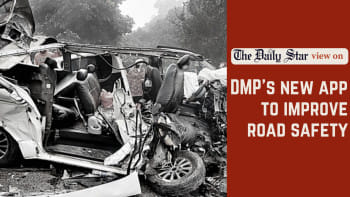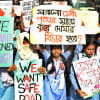Time to form a commission to ensure road safety

Although road crashes have long been the leading cause of death in Bangladesh, successive governments have never seemed to give the issue the attention or seriousness it demands. During the 15 years under the authoritarian rule of Awami League, we saw how corruption, irregularities, and politicisation became entrenched in the transport sector. We witnessed influential leaders of transport associations, in collusion with police and political leaders, create a corrupt cycle serving only their interests. Consequently, despite massive government investments, our roads remain perilously unsafe.
This is despite the 2018 road safety movement by students calling for critical reforms to address the root causes of frequent road crashes, leading to the enactment of the Road Safety Act, 2018. The law has largely remained unimplemented to this day. Consequently, far from bringing about necessary improvements, it oversaw a further entrenchment of the interests of the corrupt nexus that controlled the sector.
According to the Bangladesh Road Transport Authority (BRTA), between January and September this year, there were at least 4,153 fatalities from 4,494 road crashes nationwide—a 10.64 percent increase in crashes and a 10.26 percent increase in fatalities compared to the same period last year. In October, 469 more people were killed. After compiling data from 2014 to September 2024, Bangladesh Passengers' Welfare Association says that there have been 60,980 road accidents over these 11 years, resulting in the deaths of 105,338 people and injuries to 149,847. This is quite shocking.
Experts attribute the continuation of this tragic sequence even after the fall of the AL regime to unchecked powerplay in the sector, with BNP-linked men now controlling it. While we acknowledge that the effects of 15 years of misrule cannot be undone easily, the persistent road fatalities are unacceptable. The fall of AL on August 5 has created a golden opportunity for us to address this issue comprehensively, and it must not be squandered.
We, therefore, urge the interim government to take decisive action to overhaul this sector. Just as it has formed several commissions for reforms in other sectors, it should consider establishing a road safety commission tasked with driving essential changes in the transport sector. Without a complete overhaul and depoliticisation of the sector, we cannot hope to reduce road crashes significantly. The time to act is now.


 For all latest news, follow The Daily Star's Google News channel.
For all latest news, follow The Daily Star's Google News channel. 










Comments